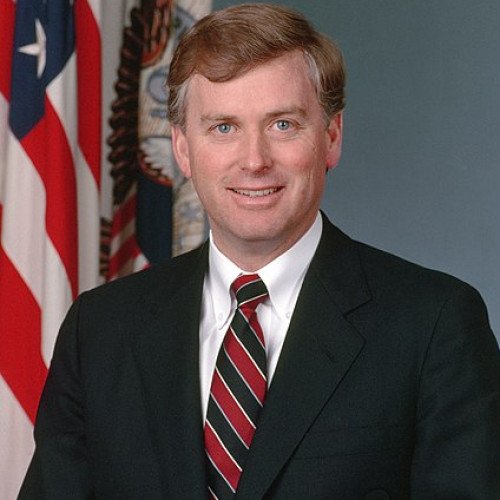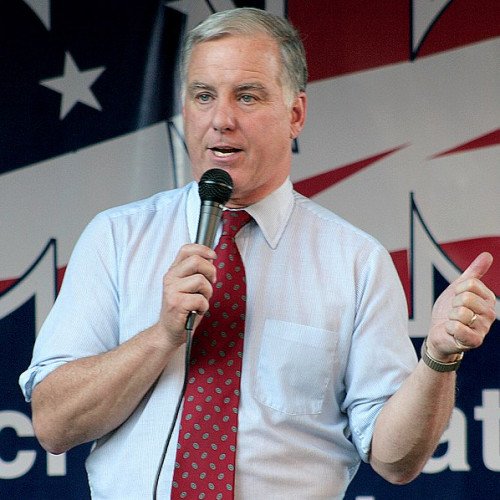Dan Quayle VS Howard Dean

Dan Quayle
James Danforth Quayle (; born February 4, 1947) is an American politician and lawyer who served as the 44th vice president of the United States from 1989 to 1993. Quayle was also a U.S. representative from 1977 to 1981 and a U.S. senator from 1981 to 1989 from the state of Indiana. A native of Indianapolis, Indiana, Quayle spent most of his childhood in Paradise Valley, a suburb of Phoenix, Arizona. He married Marilyn Tucker in 1972 and obtained his J.D. degree from the Indiana University Robert H. McKinney School of Law in 1974. Quayle practiced law in Huntington, Indiana, with his wife before his election to the United States House of Representatives in 1976. In 1980 Quayle was elected to the U.S. Senate. In 1988, Vice President and Republican presidential nominee George H. W. Bush chose Quayle as his running mate. Quayle's vice presidential debate against Democratic candidate Lloyd Bentsen was notable for the "Senator, you're no Jack Kennedy" incident. The Bush/Quayle ticket won the 1988 election over the Democratic ticket of Michael Dukakis and Bentsen, and Quayle became vice president in January 1989. As vice president, he made official visits to 47 countries and was appointed chairman of the National Space Council. He secured re-nomination for vice president in 1992, but Democrat Bill Clinton and his running mate, Al Gore, defeated the Bush/Quayle ticket. In 1994 Quayle published his memoir, Standing Firm. He declined to run for President in 1996 because he was suffering from phlebitis. Quayle sought the Republican presidential nomination in 2000 but later withdrew from the campaign and supported the eventual winner, George W. Bush. He joined Cerberus Capital Management, a private equity firm, in 1999.
Statistics for this Xoptio

Howard Dean
Howard Brush Dean III (born November 17, 1948) is an American physician, author, and retired politician who served as Governor of Vermont from 1991 to 2003 and Chair of the Democratic National Committee (DNC) from 2005 to 2009. Dean was a candidate for the Democratic nomination in the 2004 presidential election. His implementation of the fifty-state strategy as head of the DNC is credited with the Democratic victories in the 2006 and 2008 elections. Afterward, he became a political commentator and consultant to McKenna Long & Aldridge, a law and lobbying firm. Before entering politics, Dean earned his medical degree from the Albert Einstein College of Medicine in 1978. Dean served as a member of the Vermont House of Representatives from 1983 to 1986 and as Lieutenant Governor of Vermont from 1987 to 1991. Both were part-time positions that enabled him to continue practicing medicine. In 1991, Dean became governor of Vermont when Richard A. Snelling died in office. Dean was subsequently elected to five two-year terms, serving from 1991 to 2003, making him the second longest-serving governor in Vermont history, after Thomas Chittenden (1778–1789 and 1790–1797). Dean served as chairman of the National Governors Association from 1994 to 1995; during his term, Vermont paid off much of its public debt and had a balanced budget 11 times, lowering income taxes twice. Dean also oversaw the expansion of the "Dr. Dynasaur" program, which ensures universal health care for children and pregnant women in the state. He is a noted staunch supporter of universal health care.Dean denounced the 2003 invasion of Iraq and called on Democrats to oppose the Bush administration. In the 2004 election, Dean was the top fundraiser and front runner, prior to the Iowa caucus, for the Democratic Party presidential nomination. Although he lost the nomination to Senator John Kerry of Massachusetts, Dean pioneered Internet-based fundraising and grassroots organizing, which is centered on mass appeal to small donors which is more cost efficient than the more expensive contacting of fewer potential larger donors, and promotes active participatory democracy among the general public. In 2004, Dean founded Democracy for America, a progressive political action committee. He was later elected chairman of the Democratic National Committee in February 2005. As chairman of the party, Dean created and employed the 50 State Strategy that attempted to make Democrats competitive in normally conservative states often dismissed in the past as "solid red". The success of the strategy became apparent after the 2006 midterm elections, where Democrats took back the House and picked up seats in the Senate from normally Republican states such as Missouri and Montana. In the 2008 presidential election, Barack Obama used the 50 state strategy as the backbone of his candidacy. Dean was named chairman emeritus of the DNC upon his retirement. Since retiring from the DNC chairman position, Dean has held neither elected office nor an official position in the Democratic Party and, as of 2015, was working for global law firm Dentons as part of the firm's public policy and regulation practice. In 2013, Dean expressed interest in running for the presidency in 2016, but instead supported former Secretary of State Hillary Clinton's run for president. Dean endorsed Clinton over her competitor Senator Bernie Sanders in spite of the fact that Sanders represented the state of Vermont, where Dean had been governor.